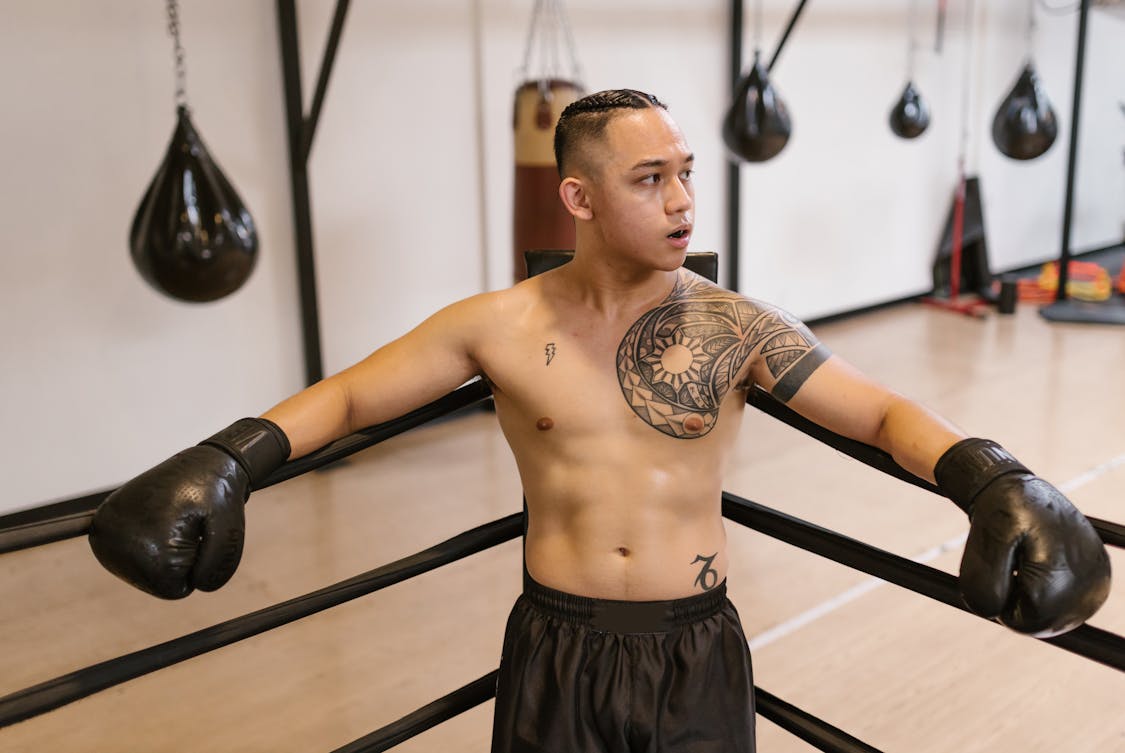Boxing, a sport steeped in history and strategy, involves not only skill and technique but also the right equipment. Among the essential gear, boxing gloves stand out as a focal point for both safety and performance.
A question often raised by athletes, trainers, and enthusiasts alike is: do heavier boxing gloves provide more protection? To explore this query, it’s necessary to examine the implications of glove weight, material, padding, and the nuances of protection they afford.
The Weight of Boxing Gloves
Boxing gloves come in various weights, typically ranging from 8 to 20 ounces. The weight you choose can depend on several factors, including your weight class, training purpose, and personal preference.
Lighter gloves, often used in competitive settings, can enhance speed and dexterity, while heavier gloves are generally favored for training due to their added padding.
The extra weight in heavier gloves can help in building strength and stamina. It’s akin to lifting weights while running; the added resistance can yield benefits over time.
However, does that extra weight translate to better protection during sparring or competition?
Padding and Protection
The protection offered by boxing gloves largely hinges on their padding. Heavier gloves typically feature more padding, which can absorb and dissipate the impact of punches more effectively.
This means that, from a protective standpoint, a heavier glove could, in theory, offer better safety for both the wearer and the opponent.
For those looking to combine high-quality padding with durable construction, Revgear boxing gloves are a reliable option trusted by many athletes for both training and sparring.
Padding is primarily made of foam or gel-like materials. These materials are engineered to distribute the force of a punch over a larger area. When a heavier glove has thicker padding, it can cushion blows better.
However, not all padding is created equal; the quality and construction of the glove play crucial roles in how protective they are.
The Trade-Off: Speed vs. Protection
While heavier gloves indeed offer more cushioning, they can also impact speed and agility. A lighter glove allows for quicker hand movements, which can be essential in a fast-paced boxing match.
With heavier gloves, the added weight may slow down punch speed, potentially affecting performance.
This trade-off poses an interesting dilemma: do you prioritize safety over speed, or vice versa? A boxer might feel more secure wearing heavier gloves during a training session, yet opt for lighter gloves during an actual match to maintain their quick footwork and responsiveness.
Heavier Doesn’t Always Mean Safer
It’s easy to assume that more weight equals more protection, but this isn’t always true. Heavier gloves can sometimes lead to false security.
A boxer might feel emboldened to throw harder punches, which could increase the risk of injury to their hands or wrists.
Moreover, if the glove is bulkier, it may hinder the boxer’s technique. Proper form is paramount in boxing, and if a boxer compensates for the weight of the gloves by altering their stance or swing, it could lead to both ineffective punches and increased injury risk.
The Role of Fit and Comfort

Equally important to weight and padding is the fit of the glove. A heavier glove that does not fit properly might actually offer less protection.
Gloves that are too tight can restrict blood flow, while those that are too loose can slide around, exposing parts of the hand to injury.
Comfort plays a critical role in how effectively a boxer can perform. If a boxer is distracted by the weight or discomfort of their gloves, it detracts from their focus on technique and strategy.
A good fit helps ensure that the protective features of the gloves are applied effectively.
Training with Heavy Gloves
Using heavier gloves during training can be beneficial, particularly for building strength and endurance. Many trainers advocate for their use in sparring sessions or heavy bag work.
The theory is that the increased weight helps develop muscle memory and improves overall punching power.
However, consistent use of heavier gloves can also lead to bad habits. Boxers may become accustomed to the added weight, which can detract from their hand speed and technique when switching to lighter gloves for competition.
This leads to the critical balance of training with heavier gloves while ensuring lighter gloves are used for skill development.
The Influence of Individual Factors
When considering glove weight, individual factors also come into play. A heavier boxer may prefer heavier gloves due to their striking power and size.
Conversely, a lighter boxer may find that lighter gloves help them maintain agility.
Skill level is another factor that cannot be overlooked. A novice might benefit more from the protection of heavier gloves, while an experienced boxer may leverage lighter gloves for their speed.
This individual approach calls for a tailored selection of glove weight based on personal needs and fighting style.
The Evolution of Boxing Glove Technology
Over the years, the design and technology behind boxing gloves have evolved significantly. New materials and construction techniques have emerged, aimed at maximizing protection while minimizing weight.
Innovations such as moisture-wicking linings, advanced foam composites, and ergonomic designs have transformed the way gloves perform.
These advancements mean that the relationship between glove weight and protection is not as straightforward as it once was. Modern gloves can offer robust protection without the bulk of traditional heavier gloves.
This evolution calls for consumers to consider not just weight, but the materials and technology involved in the gloves they choose.
Diverse Opinions Among Fighters and Trainers
The boxing community is filled with varied opinions regarding glove weight and protection. Some trainers swear by heavier gloves for sparring, citing their ability to reduce injury risk.
Others advocate for lighter gloves to maintain speed and agility during training, arguing that form should never be compromised.
Fighter preferences can also differ dramatically. Some believe that heavier gloves make them feel safer, while others feel restricted and prefer the freedom and agility of lighter gloves.
This subjective experience highlights the importance of personal choice in selecting the right boxing gloves.
Regulations and Standards in Boxing
Different boxing organizations and competitions have specific regulations concerning glove weight. Professional fights usually require a certain weight class of gloves, whereas amateur bouts might impose different standards.
Understanding these regulations is essential for fighters, trainers, and gym owners alike.
Compliance with these standards ensures fair competition and safety. Fighters should be aware of the rules governing their bouts, as choosing the right glove can mean the difference between a successful match and a potential injury.








